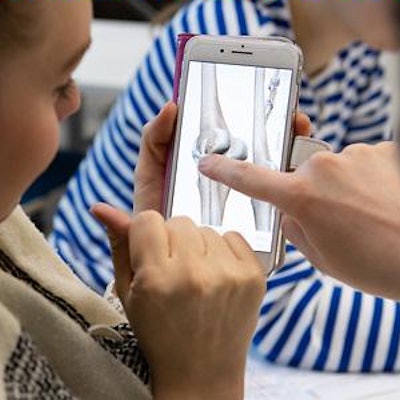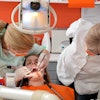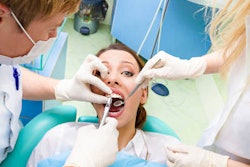
Adding game-like quizzes to dental school courses may improve learning outcomes. A recent study found dental students who took mobile quizzes during class had more motivation to learn and greater course satisfaction.
Educators from the University of Eastern Finland (UEF) implemented the quizzes during a first-year histology course for medical and dental students. The university surveyed the students about their experience at the end of the course and published the findings in BMC Medical Education (July 22, 2019).
"This pilot study explored the effects of online gamification on learning and enjoyment during a medical and dental histology course at UEF," wrote the authors, led by Szabolcs Felszeghy, DDS, PhD, a senior researcher from the UEF School of Medicine in Kuopio. "The data from this study suggest some positive benefits of incorporating games into a course because students felt the additional competition aspect ... added supplementary educational value."
 Students use mobile quizzes to study and test themselves. Image courtesy of Raija Törrönen.
Students use mobile quizzes to study and test themselves. Image courtesy of Raija Törrönen.Previous research has suggested that gamification, the process of adding game-like qualities to nongame environments, may boost student engagement and learning in business and primary educational settings. The researchers of the current study wondered if the technique could also work for medical and dental education.
They tested their theory on 215 first-year medical and dental students enrolled in a histology course during the spring of 2018. The gamification tools included software to view and share digitized microscope slides and Kahoot, a quiz tool. During labs and lectures, students broke into groups and took the quizzes either individually or as a team.
“It seemed to create an atmosphere of trust without judgment.”
The students overwhelmingly reported positive experiences using the gamification tools. More than 80% said the quizzes created an environment where they could practice without fear of judgment or error. Another 80% reported the exercises created an atmosphere for discussion and reduced their reluctance to learn course concepts.
In addition, students who used the games as part of a team had significantly better test scores than those who used them individually. The 2018 class also had higher grades than the 2017 cohort, although the difference was not significant.
"Our findings suggest that gamification used as part of a group active-learning approach improved histology education," the authors wrote. "This is illustrated by higher percentages of correct answers when the intervention took place in team-based mode rather than in individual mode."
The students seemed to genuinely enjoy the gamified learning experience. Although the quizzes were voluntary, 80% of students used them during lectures and 93% participated during labs. Many students noted the quizzes were an opportunity to get constructive feedback from supervisors in a noncompetitive environment.
"It seemed to create an atmosphere of trust without judgment," the authors wrote. "In fact, the key feature encountered by students was the ability to feel at ease and to be able to relate to each other."



















